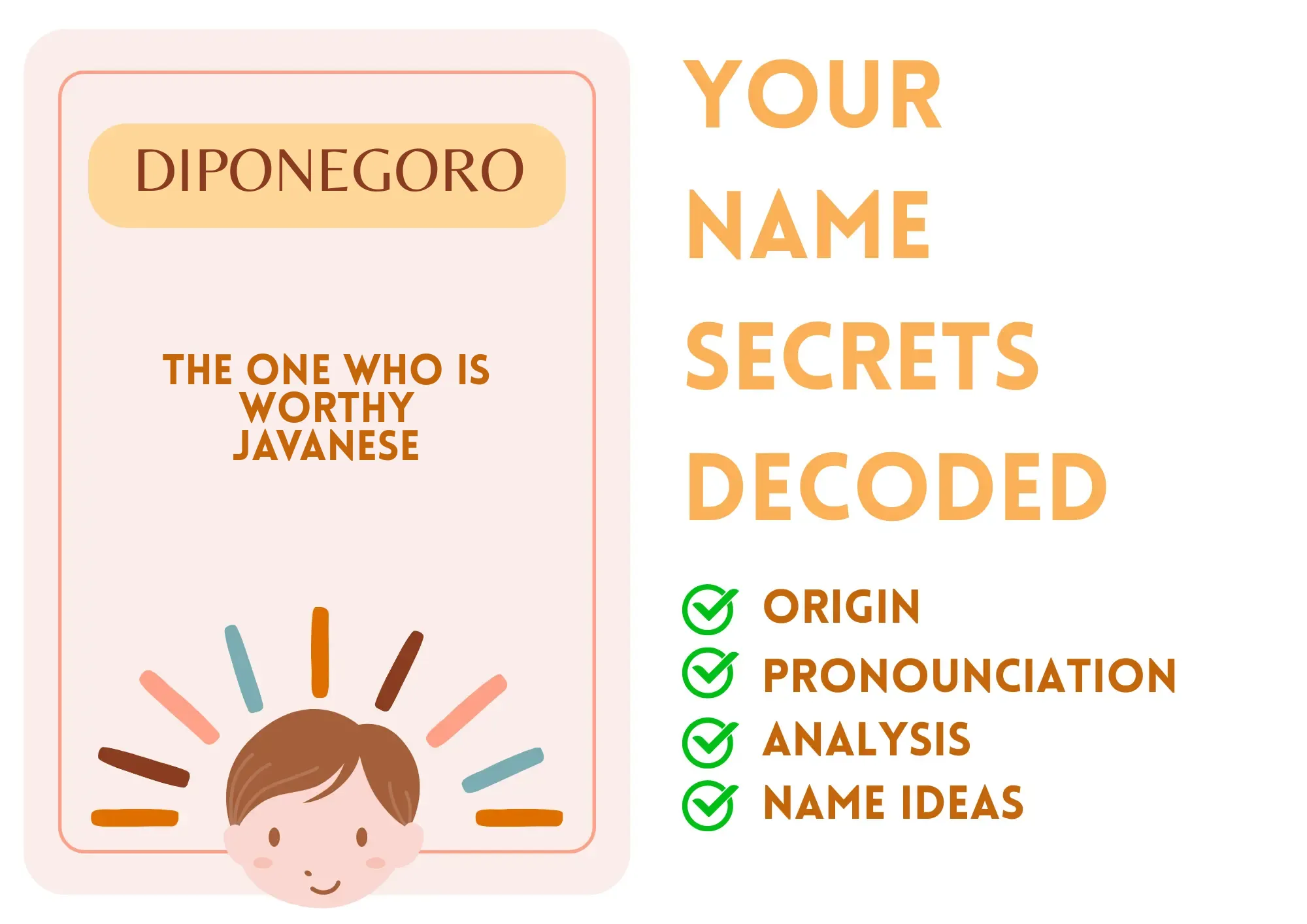
Diponegoro
Diponegoro is a prominent name of Javanese origin, translating loosely to 'the one who is worthy.' It is most commonly recognized as a historical name, notably belonging to Prince Diponegoro, who led the Java War against Dutch colonial authorities in the 19th century. The name carries significant cultural value in Indonesia, closely associated with resistance, nationalism, and the struggle for independence.
Diponegoro is perceived as a strong and powerful name, evoking feelings of bravery, leadership, and cultural pride. Its long and complex structure might make it a unique choice in a global context. Common nicknames include Dipo and Nego.
The name finds roots in Indonesian history and culture, celebrated for its link to national pride and the fight for independence. Despite its length, it is deeply respected and appreciated within Indonesian culture.
Basic Information
Gender: Boy
Sounds Like: dee-poh-neh-go-roh
Pronunciation Explanation: The name is pronounced with four syllables: 'dee' as in 'deep', 'poh' like 'pole', 'neh' like 'nay', and 'go' like 'go'. The last syllable 'roh' rhymes with 'row'.
Summary and Meaning
Meaning: the one who is worthy (Javanese)
Origin: The name Diponegoro originates from Java, Indonesia, and is deeply rooted in the Javanese language and culture.
Usage: Diponegoro is traditionally a masculine name, associated with male historical figures and leaders.
Name Number (Chaldean)
Name Number (Pythagorean)
Religious and Cultural Significance
Religion: Islam
Background: In Indonesia's predominantly Islamic culture, names like Diponegoro are often chosen for their historical significance and meaning, resonating with values that emphasize respect and honor.
Cultural Significance: Diponegoro represents a key figure in Indonesian history, symbolizing the resistance against colonialism, and embodies the values of bravery and integrity that many Indonesian families aspire to.
Historical Significance: Historically, Prince Diponegoro played a prominent role in the Java War (1825-1830), marking a crucial period in Indonesia’s fight against Dutch colonial rule, making the name a lasting symbol of nationalism.
Popular Culture
Literature and Mythology: Diponegoro is often referenced in Indonesian literature and history, including novels and historical texts that recount his life and contributions.
Movies and Television: Characters based on or inspired by Prince Diponegoro can be found in Indonesian films and series that explore themes of heroism, struggle, and independence.
Feelings and Perceptions
Perception: Diponegoro is largely perceived as a powerful and meaningful name. The connection to nationalism and historical significance fosters a sense of pride among those who carry it.
Positive Feelings: Strong, noble, historical, significant, inspiring.
Negative Feelings: Some may find it hard to pronounce or remember due to its length and complexity.
Practical Considerations
Ease of Writing and Calling: While the name Diponegoro is relatively long, it is phonetic in English, making it manageable to write and pronounce once familiar. It consists of ten letters with four syllables.
Common Typos and Misspellings: Diponegoro,Dipoengoro,DipoNegoro,DipoNogoro
Common Nicknames: Dipo,Nego
Compatibility Analysis
Famous Persons Named Diponegoro
No results found for Diponegoro.
Related Names
Similar Sounding Names:
Devanagari,Dipendra,Divakar